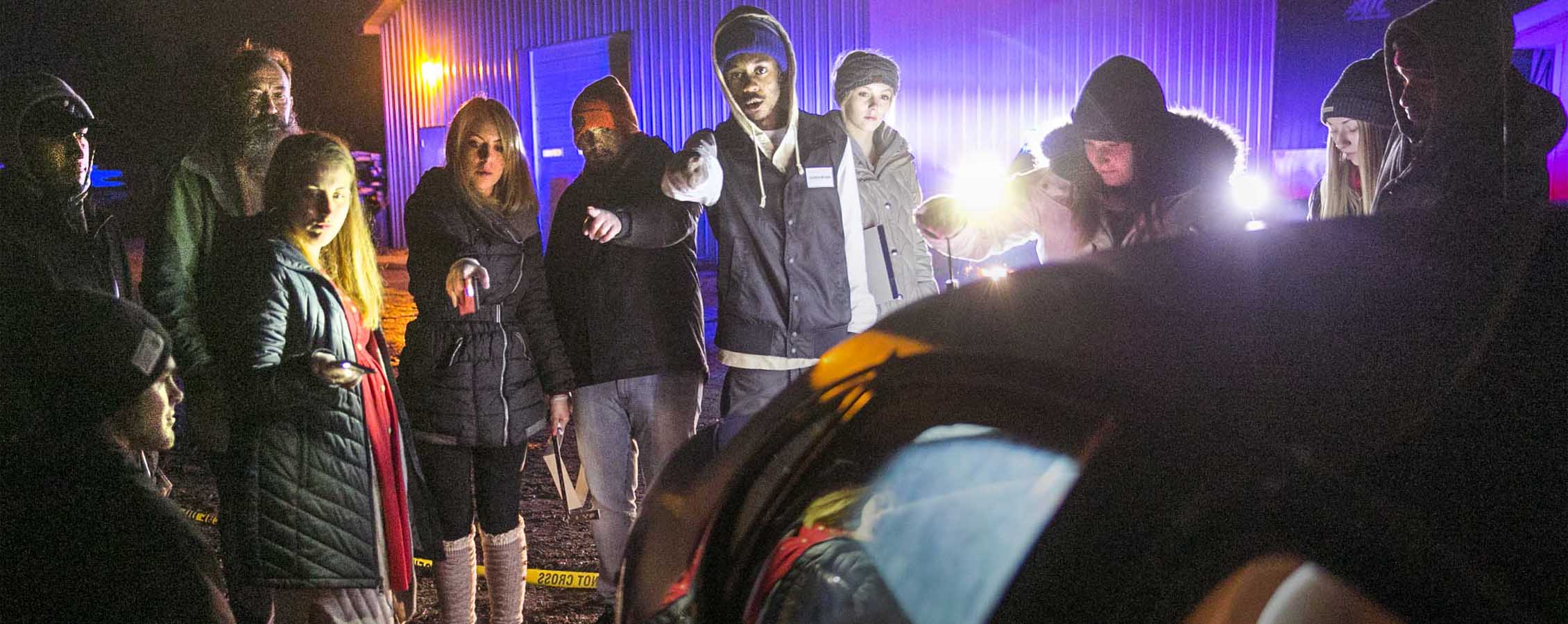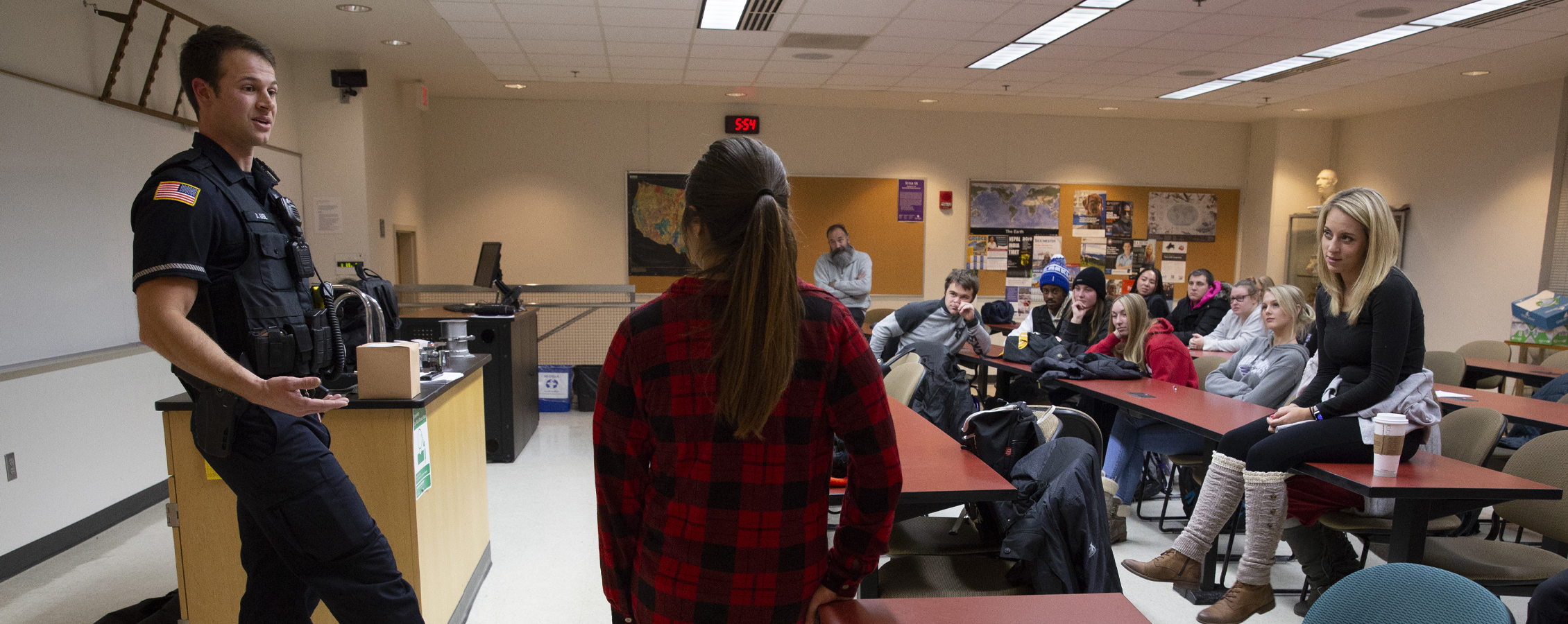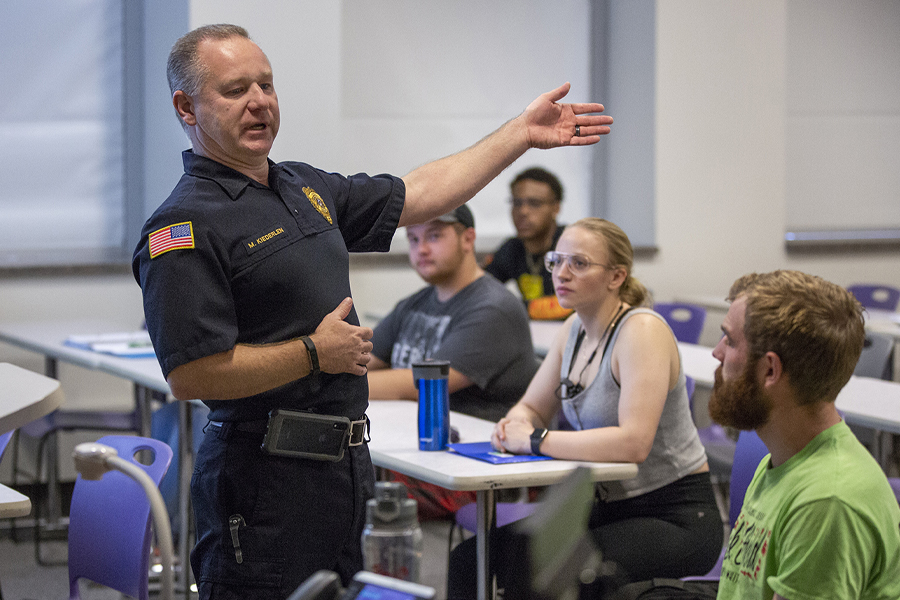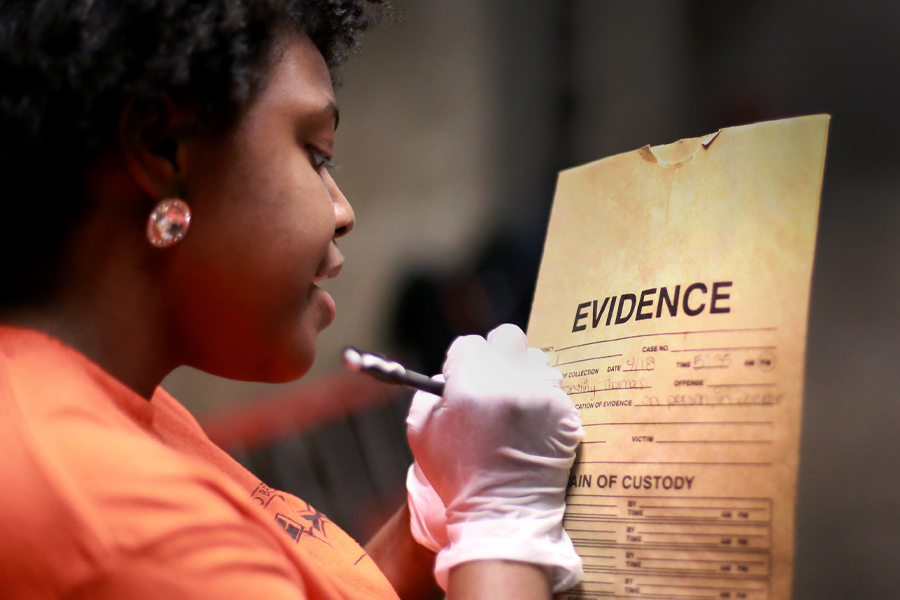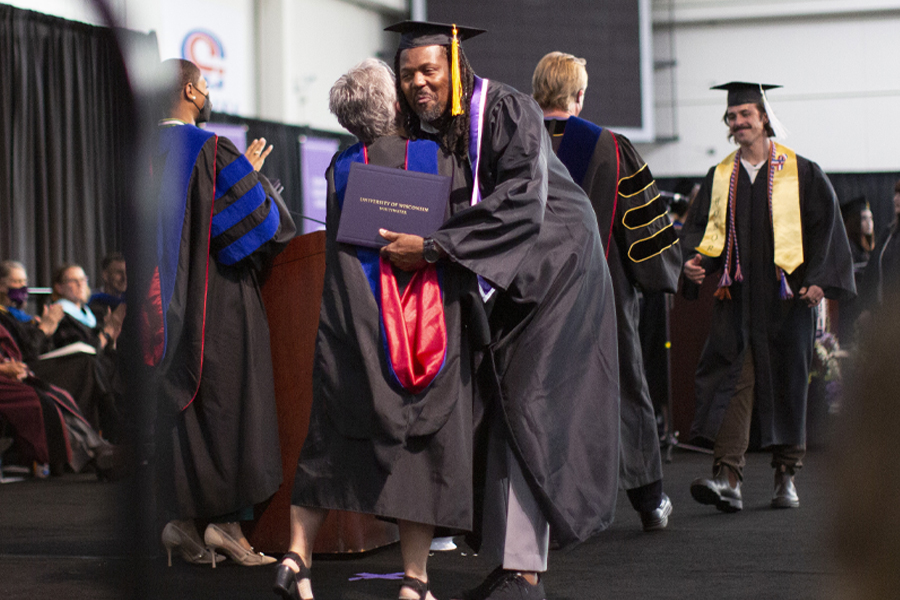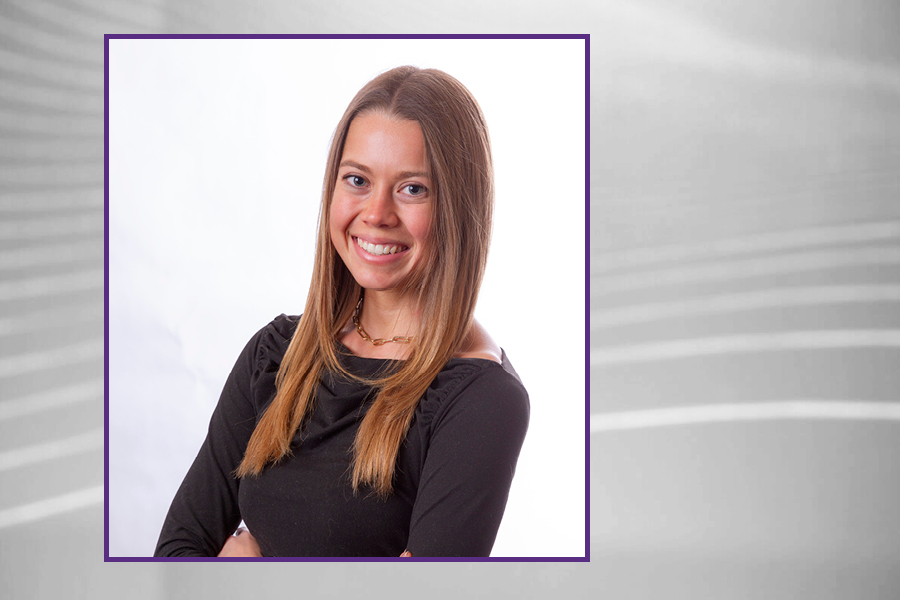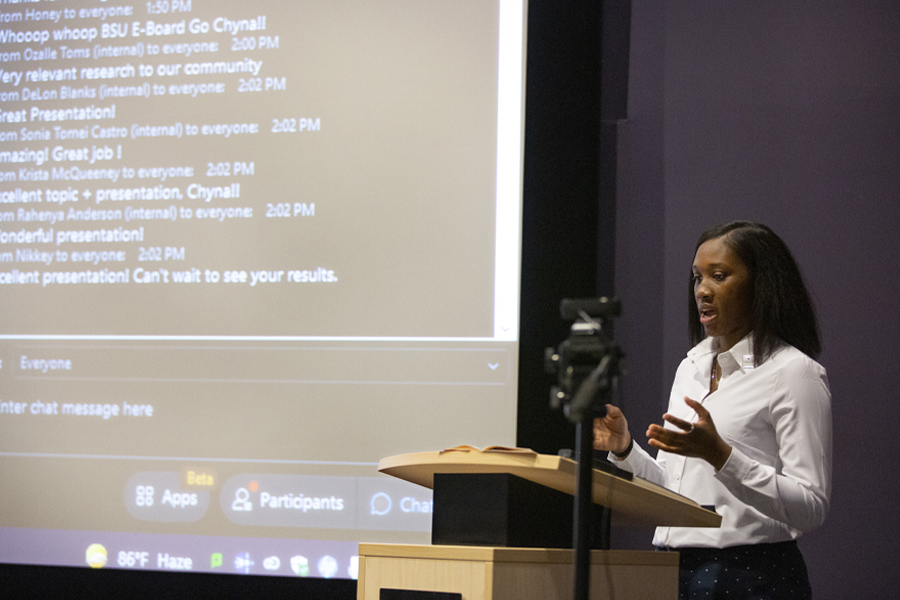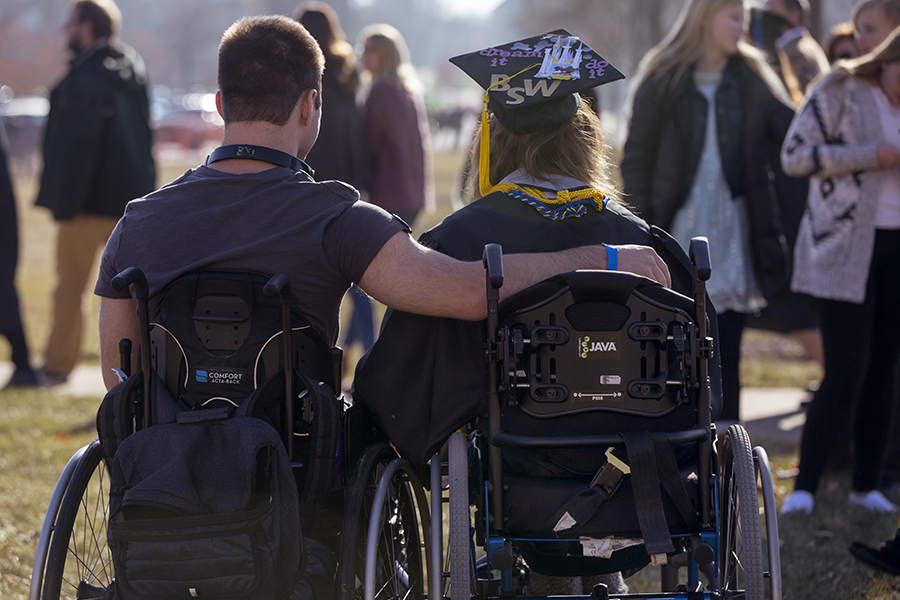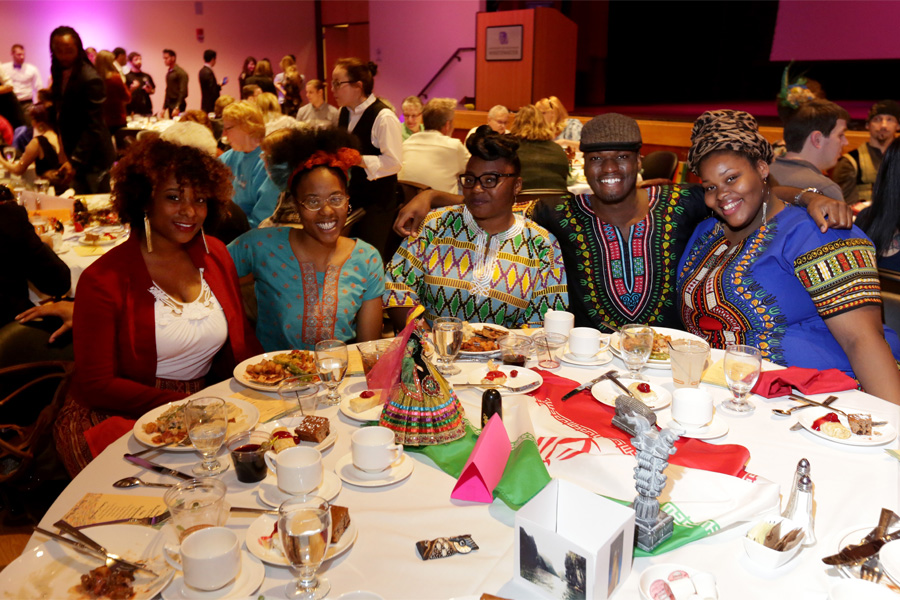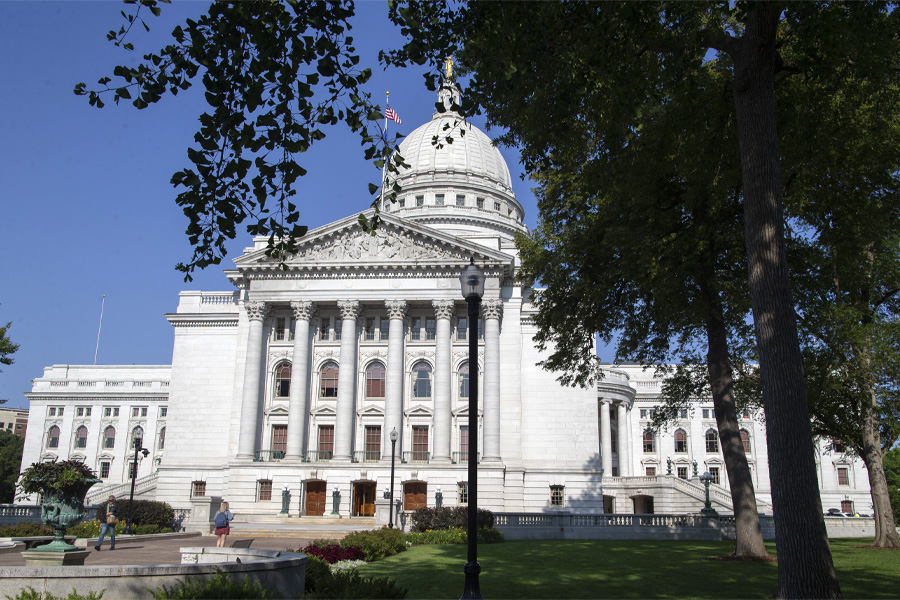CRIMINOLOGY
Bachelor’s Degree Programs
The science behind crime and the criminal mind.
If you’re interested in a career in law enforcement or investigations, you might have wondered about the difference between criminology and criminal justice.
Criminology, a field born from sociology, is the study of crime and criminal behavior; criminal justice explores the systems established to handle crime. Both degrees prepare you to enter the law enforcement and legal fields after graduation, and employers especially value the conceptual thinking and cultural competency a criminology major brings to positions in investigations, parole and corrections.
UW-Whitewater offers the only criminology degree program in the state system, and it offers a balance between practical skills needed for careers in public safety and crime scene investigation and the foundational theories that help you understand “the why.”
Over the next decade, the U.S. Bureau of Labor Statistics projects employment growth of 14% for forensic science technicians, 7% for criminologists and sociologists, 5% for private detectives and investigators, and 4% for probation officers and correctional treatment specialists.
CAN WE BRAG A LITTLE?
Why major in Criminology at UW-Whitewater?
The Department of Sociology, Anthropology and Criminology is a close-knit group offering opportunities for interaction between students, faculty members, alumni and the community. A few highlights include:
- Annual student awards banquet
- Career events featuring alumni guest speakers
- Honor society inductions
- Service-learning opportunities, such as teaching meditation at the Rock County prison
- Cutting-edge forensic equipment like ground-penetrating radar
- Scholarships and research grants
- Courses taught by faculty members, not graduate assistants
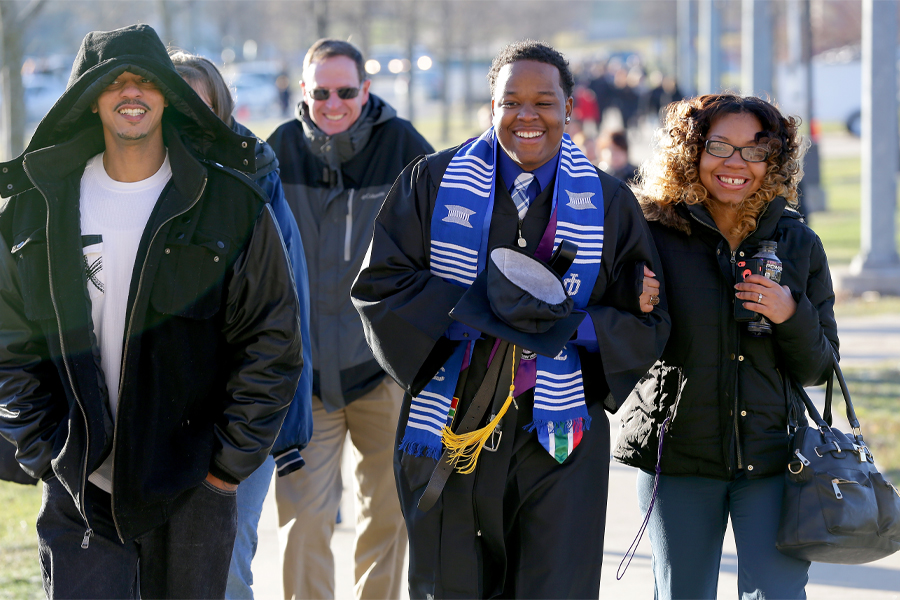
Criminology graduate paves the way
While Amos Malone struggled at first, the inspiration and support he received — from his fraternity members and professors — gave him the tools and the confidence he needed to thrive in college, to be successful professionally and to give back by helping to pave the way for future criminology students.
What our Criminology students do
Hands-on learning experiences
As you pursue your bachelor’s degree in criminology, you will gain hands-on experience such as:
Scenarios and situations
Learn by doing through mock crime scenes, simulated court activities and death investigation case studies.
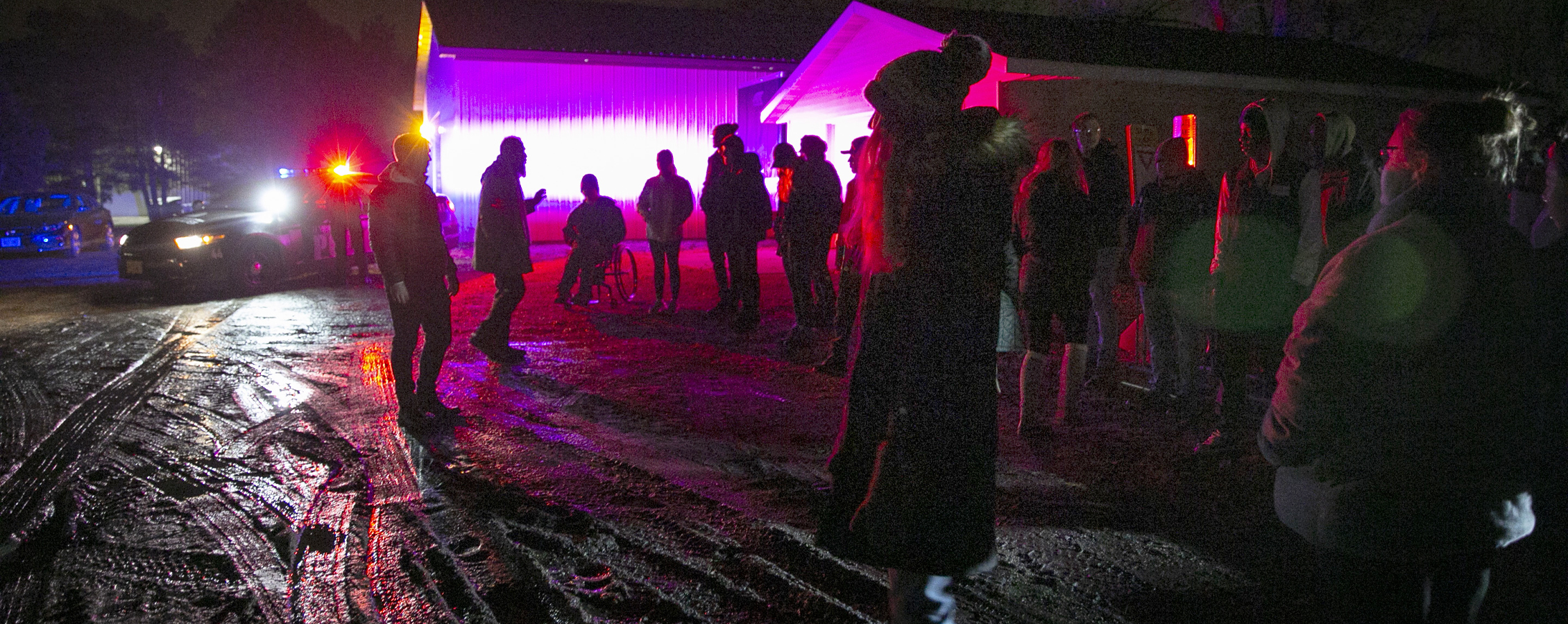
Internships
A major in criminology can lead to exciting real-world learning opportunities that will help you stand out from other applicants. Our students intern in legal, law enforcement, corrections and government settings such as Rock County Circuit Court, Wisconsin Office of the Public Defender, Walworth County Restorative Justice Program, Milwaukee County Juvenile Services and various county sheriff’s offices.
Undergraduate Research
In UW-Whitewater’s Undergraduate Research Program, our students study a range of topics, from racial inequality and educational access to the effects of media consumption and the impact African American barbershops have on communities. This work often results in students presenting at national or regional conferences. This research experience is especially valuable if you plan to earn a graduate degree in criminology or a related field.
Campus and community involvement
Our department is home to student organizations and honor societies such as:
- Student Anthropology and Archaeology Society
- Criminal Justice Organization
- UWW Empower!
- Alpha Kappa Delta (sociology honor society)
- Alpha Pi Sigma (criminology honor society)
What our graduates do
What can you do with a Criminology degree?
After earning their criminology degree, most of our students find careers in law enforcement, corrections and the nonprofit sector. Example agencies include:
- City police departments
- County sheriff's departments
- FBI
- U.S. Drug Enforcement Agency (DEA)
- U.S. Marshals Service
About 10% of our graduates pursue an advanced degree in criminal justice, criminology, sociology, social work or another related area.
Our faculty
Criminology faculty members are actively engaged in research and publication in their area of speciality, which further enhances the student experience.
Want to learn more about earning a Criminology degree?
262-472-1133 | sociology@uww.edu
UW-Whitewater offers the following criminology options:
- Bachelor of Arts — Criminology | 4-year plan [PDF]
- Bachelor of Science — Criminology | 4-year plan [PDF]
Minors:
Certificates:
In addition to UW-Whitewater’s general education requirements, as a criminology major, you’ll take a set of core and foundational courses, such as:
- Criminological Theory
- Basic Social Statistics
- Sociology of Police and Courts
- Sociology of Punishment and Corrections
- Race and Ethnic Relations
You’ll also get to choose electives and advanced courses based on your personal and professional interests, such as:
- White Collar Crime: Corporate and Government Deviance
- Gender, Sexuality & Crime
- Forensic Documentation
- Child Welfare
- Sociology of Violent Crime
Criminology requirements also include completion of an approved minor.
To apply, you’ll complete the UW-Whitewater standard application for admission and indicate your interest in the criminology major.

